NHA Educator Cultivates Excitement by Connecting Life and Learning
NHA Communications TeamNHA Communications Team
Articles by NHA Communications Team
-
Grand River Prep Gives Politicians a Look at Charter School Experience
Published: Nov 04, 2022
-
Grand River Prep Teacher Recognized as 2021 Betty Van Andel Teachers of Excellence
Published: May 07, 2021
-
Grand River Prep Teacher Announced as Finalist for Annual Charter School Educator Awards
Published: Apr 09, 2021
-
Grand River Prep Teacher's Pandemic Silver Lining Benefits Students Beyond His Classroom
Published: Jan 29, 2021
Keeping things exciting in the classroom is a great way to keep students engaged, and Brandy Coombs, seventh- and eighth-grade teacher at Wake Forest Charter Academy, knows how to keep it energizing.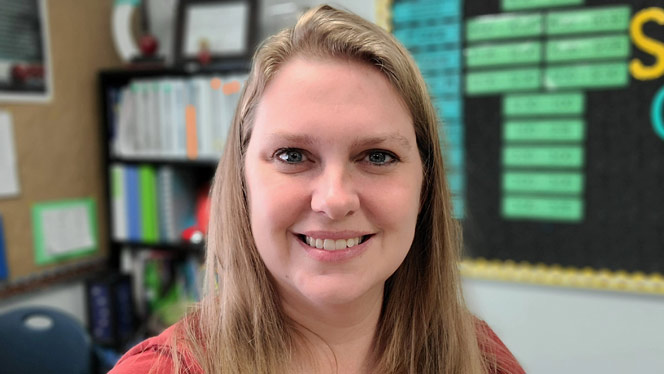
Ms. Coombs believes it’s important for students to ask their own questions and do their own research because she believes they learn more and will remember the information if they wonder about it and find the answers. She hopes that the thrill of figuring something out or getting the answer to their questions will lead to them wanting to ask more questions.
“I love what I teach and am excited when teaching the information,” said Ms. Coombs. “I believe my excitement rubs off on them and they take more notice to what is going on. I grew up with my grandfather always telling me that it is important to learn something new every day. Part of learning is asking questions.”
Ms. Coombs also tries to make as many connections to real life as possible so her students can understand the importance of learning the material. She encourages her students to be curious because she loves expanding on what her class is learning by answering their questions, praising them when they make their own connections.
A great example of a time when her class was able to ask questions and do their own research was when her students were cleaning out the school’s community garden to start spring planting and they found three bunnies. Her class researched bunnies and what they needed, keeping their distance to teach students that the wild animals needed to learn and grow without help.
“I want the students to see that I am also always learning, and we can learn together,” said Ms. Coombs. “I was just as excited about the bunnies as they were.”
Over her seven years at the school she still gets really enthusiastic about science, which she believes makes her students more excited. But Ms. Coombs doesn’t just rely on excitement to fuel her class – she has a secret weapon that brings her class to life.
She has a hobby farm with a Nigerian Dwarf Goat named Thor, four chickens, a beehive, two cats, and a dog. She also plants a ¼ acre garden each year with a variety of vegetables, and she also has several apple trees, pear trees, blueberry bushes, and one grape vine.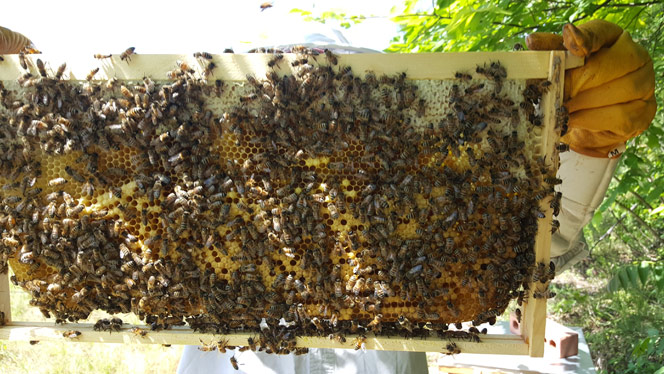
From her farm, Ms. Coombs is able to draw connections to lessons to bring science to life for her students. Her class normally ask a lot of questions about her farm and are curious about how things work. They hear things from students who have taken her classes before, so they walk in the door curious about her bees and chickens. She even has a get-to-know-you activity at the beginning of the year that she infuses with information about her farm and animals.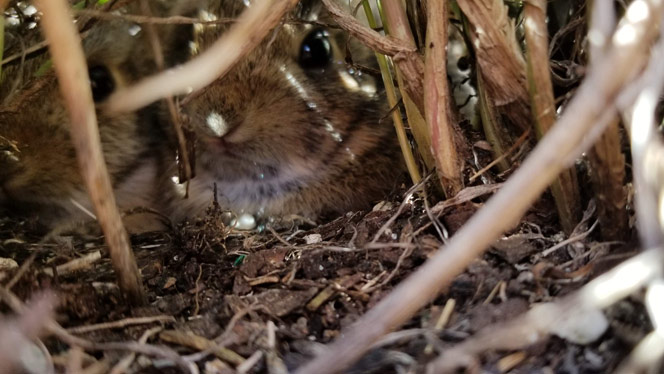
The opportunities to connect science to her hobby farm expand widely. Ms. Coombs has brought in creek and swamp water so her students could test the water quality. That leads into a discussion about how the cattle farm next door could affect the nitrate and phosphate levels. She also makes connections to molecular biology, where she teaches about the crops she grows at home and in the school’s community garden to describe how plants go through photosynthesis and what that means. Her honeybees and flowers are a great example for teaching ecosystems. In years past, Ms. Coombs has incubated her chickens’ eggs and had the students study the process of chick development. 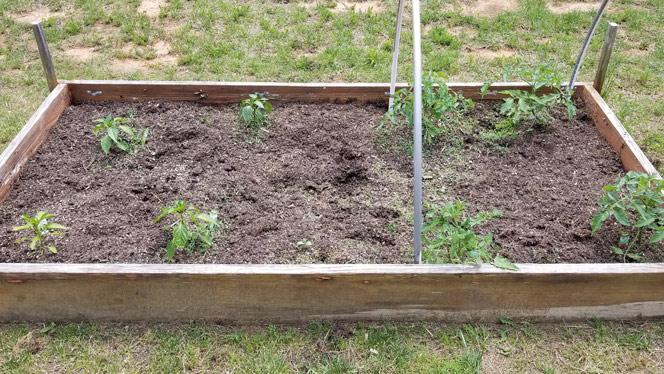
In the gardening elective, she shares what she’s learned from her own garden, connecting honeybees and their relationship to growing crops. She connects this to how some farmers rent out beehives to pollinate their crops, which leads into how honeybees make honey. She has even had her students test store-bought honey and her own honey to see which they preferred. 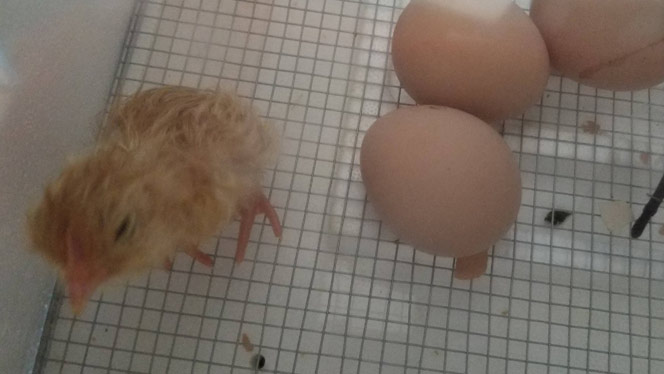
“Ms. Coombs encourages her students to inquire and investigate in the classroom,” said Brandi Gill, principal at Wake Forest. “When observing her classroom, you will hear her say, ‘What evidence do you have to support that conclusion?’ She loves to help her students make connections in class either through notes, videos, activities, conversations, experiences, or other subjects. Students love her engaging instruction and experiments in her classroom. Her colleagues view her as a supportive mentor that goes above and beyond to ensure a successful school year.”
Keep up the great work, Ms. Coombs
